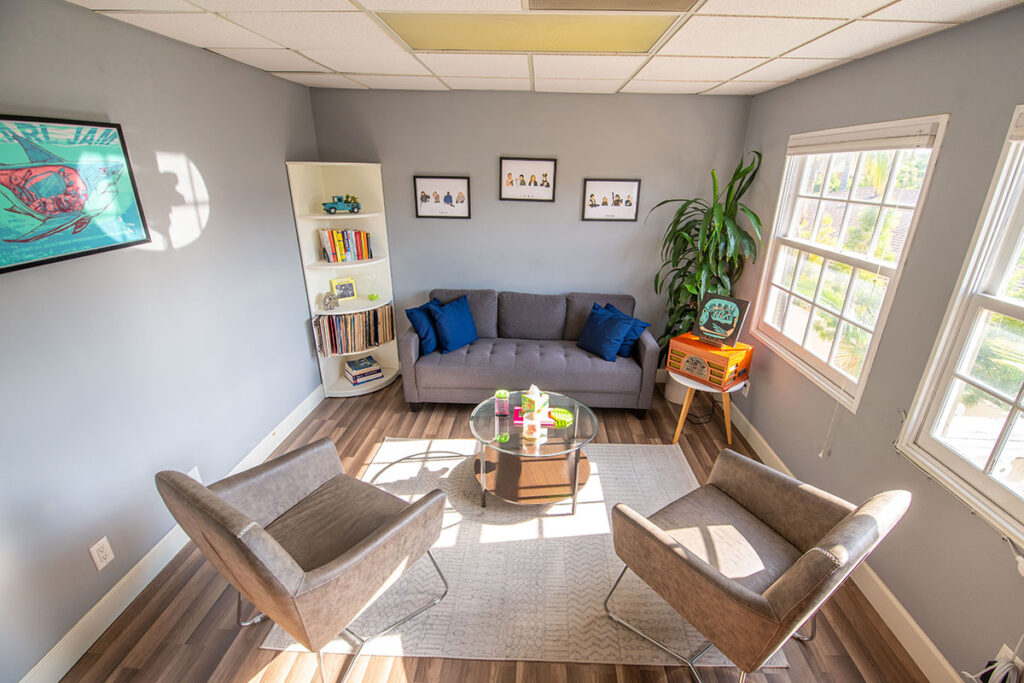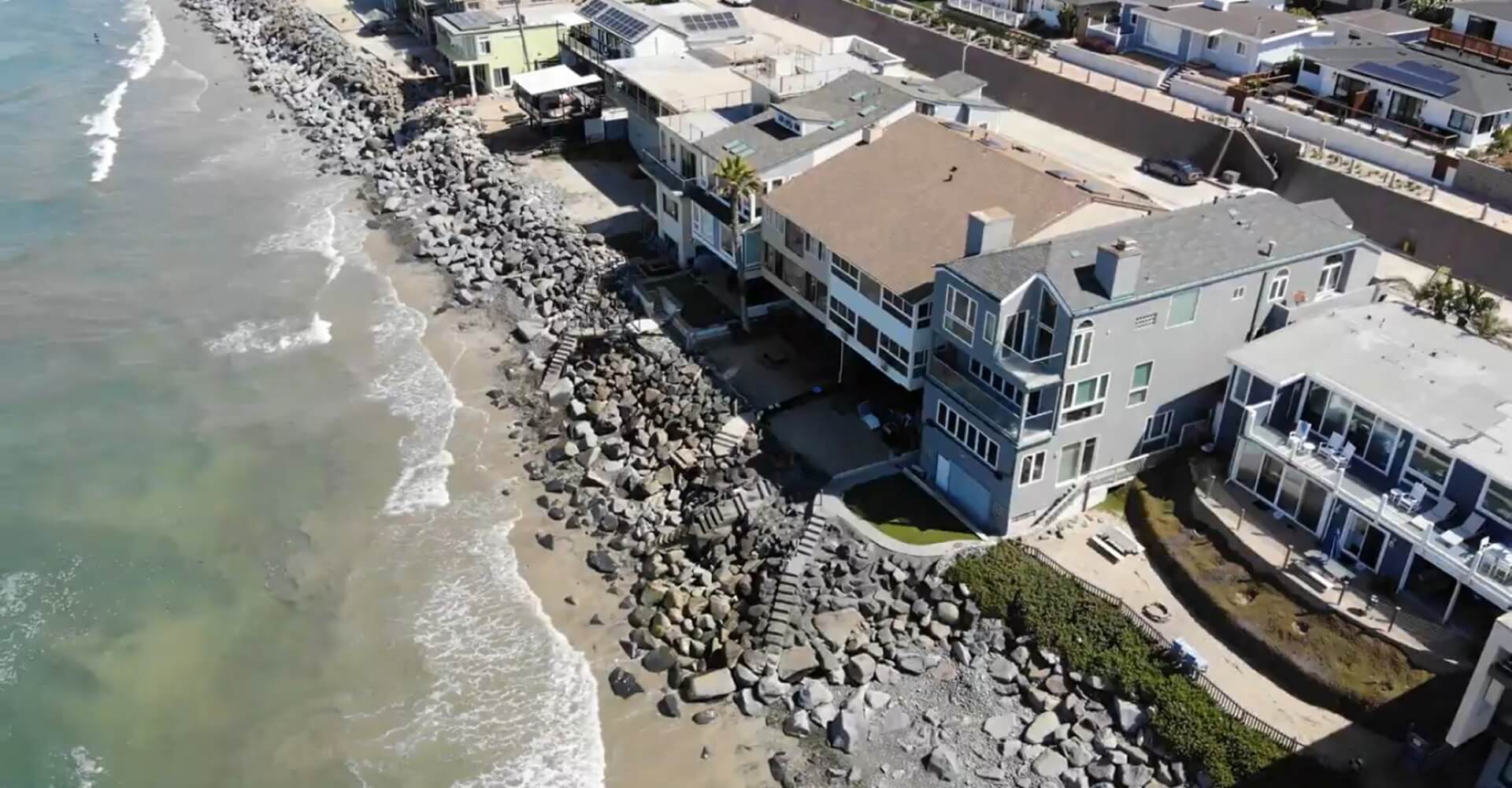We all know the old saying: “Admitting you have a problem is the first step toward recovery.”
We agree: healing can’t happen without acknowledging your addiction. But taking subsequent steps after this first step can be scary—especially if you don’t know what to expect. Below, we’ll delve into what individuals can expect from drug rehab and addiction treatment centers, shedding light on daily life, therapeutic modalities, the level of freedom you can expect, and the supportive environment you’ll find here at SCRC.
Understanding Drug Rehab and Addiction Treatment
Drug rehab offers a structured program designed to help individuals struggling with drug addiction to overcome substance abuse. Though SCRC offers only outpatient addiction treatment, during which clients live off-site and attend sessions daily, it’s beneficial to understand the spectrum of rehab programs available. Specialized programs may also be available for specific populations to address unique needs and circumstances.
What’s Typically Involved in Rehab:
Detoxification: This is the first step in many addiction treatment programs. It aims to remove the abused substances from the body while managing withdrawal symptoms.
Behavioral counseling: Individual, family, and group therapy can help clients identify the root causes of substance abuse, mend relationships, and learn healthier coping strategies.
Medication: For some, medications are used to manage withdrawal symptoms, prevent relapse, or treat any co-occurring mental health conditions such as depression or anxiety.
Evaluation and treatment for co-occurring disorders: This includes treatment for any mental health issues that accompany addiction.
Long-term follow-up: To prevent relapse, long-term follow-ups may include community or family-based recovery support systems.
The specific type of addiction treatment or combination of treatments will vary depending on the client’s individual needs and, often, on the types of drugs they use. Addiction treatment can occur in various settings, durations, and formats, including residential addiction treatment, outpatient therapy, and long-term recovery support. The overall aim of treatment is not only to stop drug use, but also to return individuals to productive functioning in their family, workplace, and community.

The Drug Rehab Process
Here’s what you can expect when you reach out to us at SCRC for alcohol addiction and treatment.
Initial Assessment and Intake:
The journey at SCRC begins with an initial evaluation. When you reach out to our admissions team, they’ll conduct an assessment, or an interview, to help determine whether our addiction treatment program is the right fit for your recovery. If we are, we’ll craft a personalized addiction treatment plan designed to meet your unique needs, goals, and behaviors. This plan lays the groundwork for the recovery process.
Therapy and Counseling:
Part of this addiction treatment plan will likely include therapy and counseling, including individual, and family therapy, and group therapy. Therapy is a crucial component of the recovery process because it plays a vital role in addressing the underlying psychological aspects of addiction, helping individuals understand the root causes of their substance abuse, develop coping strategies to deal with cravings and triggers, and ultimately achieve and maintain sobriety. Here are several reasons why therapy is important in recovery:
1. Understanding the Causes of Addiction:
Therapy helps individuals uncover the underlying reasons for their addiction, which can include stress, trauma, mental health disorders, or environmental factors. Understanding these causes is essential for effective treatment and prevention of relapse.
2. Developing Coping Strategies:
Through individual, family, and group therapy, individuals learn coping mechanisms to deal with the challenges and stressors that may trigger substance abuse. This includes learning how to handle negative emotions, stress, and triggers in a healthy way.
3. Improving Mental Health:
Many people with substance use disorders also suffer from co-occurring mental health issues such as depression, anxiety, or PTSD. Individual and group therapy can treat these underlying conditions, reducing the need for substances as a form of self-medication.
4. Enhancing Social Skills:
Therapy often includes developing and improving interpersonal skills, which can help individuals rebuild relationships damaged by drug or alcohol addiction, and create a supportive social network that is crucial for recovery.
5. Supporting Behavior Change:
Behavioral therapies, such as Cognitive Behavioral Therapy (CBT), motivate individuals to change their behavior related to drug use. These therapies can help modify attitudes and behaviors related to drug and substance abuse treatment and increase healthy life skills.
6. Relapse Prevention:
Therapy is key in teaching individuals how to recognize early signs of relapse and take steps to prevent it. This includes identifying high-risk situations and developing strategies to avoid or cope with them.
7. Providing a Supportive Environment:
Therapy offers a safe and supportive environment where individuals can discuss their experiences, challenges, and feelings. This support is crucial for emotional healing and recovery.

Specialized Treatments
We offer evidence-based and holistic therapies aimed at treating the whole person, not just the addiction. These treatments focus on the mental, emotional, physical, and sometimes spiritual aspects of recovery. Here are some treatments included in our rehab programs:
Cognitive Behavioral Therapy (CBT):
A widely used method that helps individuals recognize and change maladaptive behaviors and thought patterns related to substance abuse.
Dialectical Behavior Therapy (DBT):
Focuses on teaching coping mechanisms to manage emotions, reduce stress, and improve relationships. It’s particularly effective for individuals with dual diagnoses, such as substance use disorder and borderline personality disorder.
Medication-Assisted Treatment (MAT):
Combines behavioral therapy and medications to treat substance abuse. It’s often used in outpatient and inpatient treatment for opioid, alcohol, and nicotine addiction.
Mindfulness and Meditation:
Practices that help individuals focus on the present moment, improve self-awareness, and manage stress and anxiety.
Yoga and Exercise:
Physical activities that improve physical health, reduce stress, and promote emotional well-being. Yoga, in particular, is praised for its ability to enhance mindfulness and body awareness.
Adventure Therapy:
Involves outdoor activities like hiking, climbing, or boating to build self-esteem, foster teamwork, and develop coping strategies.
Incorporating these holistic and specialized treatments allows us to offer a more personalized and comprehensive approach to recovery, addressing not just the substance abuse itself but the underlying factors contributing to it. The treatment process is transformative.

Our Multi-Phase System
At SCRC, a typical day is structured yet flexible, with therapy sessions, activities, and allocated free time. We enforce rules like no substance use and participation in sessions and meetings, which is essential for creating a safe and focused healing environment. Our guidelines also foster a sense of responsibility and commitment to the recovery process. The sense of community and support at SCRC is palpable, with peer support groups, group and individual therapy, and staff availability underlining the collective journey toward recovery. This community aspect is vital in offering encouragement and understanding along the way.
Here’s a breakdown of our multi-phase system:
Phase 1: Setting the Foundations
When you first enter treatment, you’ll begin Phase 1, a highly structured 5-day-a-week, 6-hour-a-day program that serves to ease you into the surroundings of North County San Diego and establish a firm foundation for your sobriety. Our approach during this crucial time is hands-on, with 24/7 staff support to guide you. We understand that each person’s path to recovery is different, and that’s why Phase 1 is tailored to your unique needs.
Phase 2: Building Healthy Habits
Phase 2, the longest phase of our program, scales back to 3 days a week for 3 hours a day. During this time, we focus on fostering healthy habits, honing life skills, and inspiring you to pursue your passions. We offer flexible treatment schedules to accommodate your job and other responsibilities. The goal of this phase is to help you transition into a responsible, sober adult who enjoys life.
Phase 3: Immersion into Independence
Phase 3, the tail end of our treatment, focuses on independence. By now, your treatment and sobriety will be well established. Our goal during this phase is to provide curated support as you prepare to graduate from the treatment setting. The length of Phase 3 is dependent on your needs and situation. Remember: even after you leave the treatment center, you’ll still be part of the SCRC family.
How Long Does Rehab Take?
Outpatient alcohol rehab treatment and addiction treatment can range from a few weeks to over a year. Here’s a general breakdown of common outpatient program durations:
- Short-term intensive outpatient programs might last anywhere from 4 to 12 weeks. These programs often include intensive therapy sessions several times a week.
- Long-term outpatient treatment can extend from several months to a year or more. Long-term programs may start with more frequent meetings and gradually decrease the frequency as mental health services the individual progresses.
- Ongoing maintenance or aftercare can continue indefinitely. After completing a structured or intensive outpatient program alone, individuals may participate in weekly group meetings or group therapy sessions as part of a long-term recovery strategy.
The duration of outpatient drug rehab at a substance abuse treatment program varies widely depending on several factors, including the severity of the addiction, the substance(s) being abused, the treatment plan specifics, and the individual’s personal circumstances and progress. Unlike inpatient rehab, which typically has a set duration, SCRC’s outpatient programs offer more flexibility, allowing participants to continue with their daily lives, work, and family responsibilities while receiving treatment.
Again, the “right” duration for outpatient drug rehab is highly individualized. It’s determined based on ongoing assessments of an individual’s progress toward recovery goals, with adjustments made as needed. Continuous support, whether through regular therapy sessions, support group meetings, group therapy, or other forms of aftercare, is crucial for maintaining sobriety and preventing relapse.
Transitioning Out of Rehab: Aftercare and Continued Support
Transitioning out of rehab involves careful planning, with options like step-down programs or continued outpatient care. SCRC supports individuals in this phase, preparing them for a successful return to daily life. We offer resources and programs to assist individuals in their long-term recovery journey, including alumni programs and referrals to local sober living homes.
Hopefully, understanding what drug and alcohol rehab is like has provided a clearer picture of the path to recovery. At Southern California Recovery Centers, our commitment to personalized care, a supportive community, and comprehensive treatment programs offers hope and guidance for those ready to embark on their journey towards a healthier, substance-free life. If you or a loved one is considering rehab, remember that recovery is a journey, not a destination, and SCRC is here to support you every step of the way.



